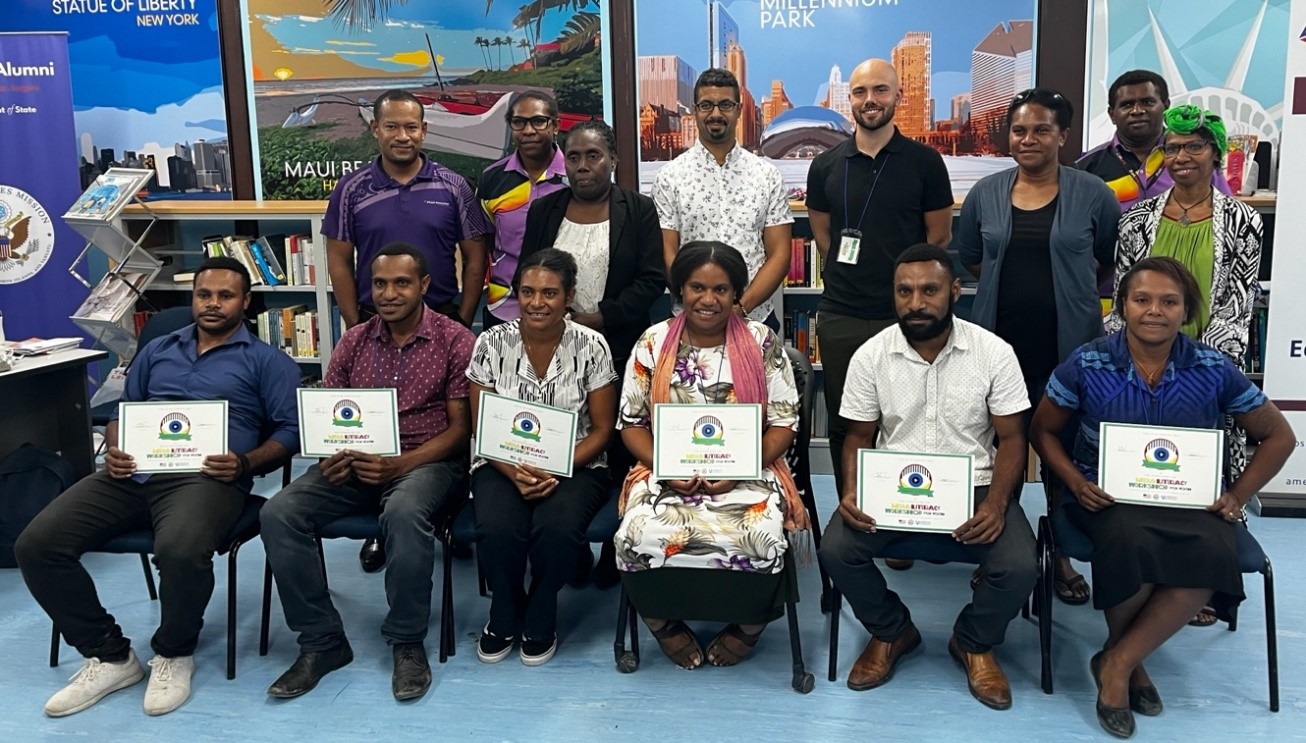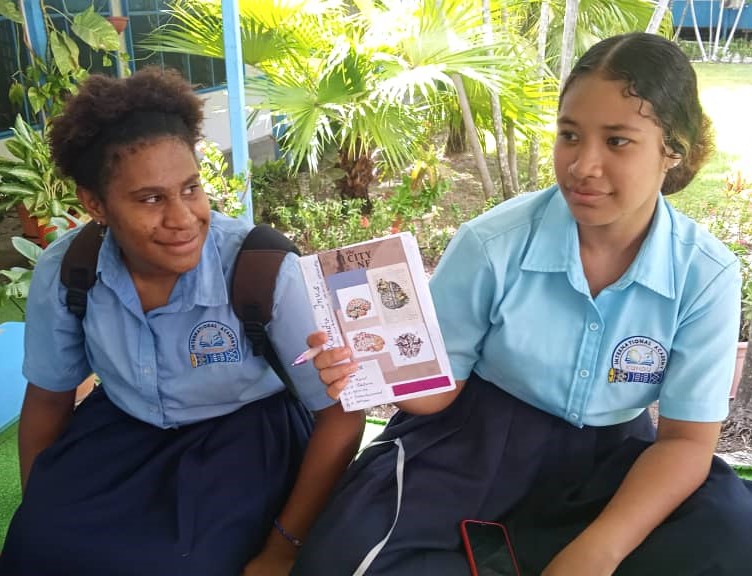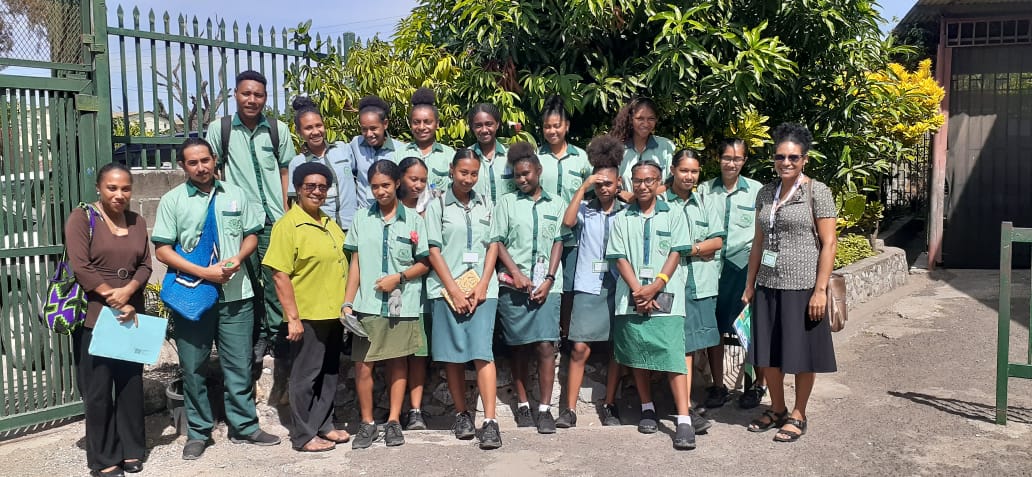American Councils partnered with the U.S. Embassy in Papua New Guinea to create the Media Literacy for Youth program, which taught media literacy skills to 197 participants in Papua New Guinea, Solomon Islands, and Vanuatu. The training, led by Media Literacy Program Manager Benjamin Thurn, represents American Councils’ first programming in Papua New Guinea.

This program aimed to develop more literate online digital citizens and support additional opportunities to demonstrate and spread media literacy. Six teachers and six senior journalists came together to Port Moresby from September 28-30. The workshop, held in the American Corner at the National Library and Archives, trained teachers in Papua New Guinea to write, research, and interview like journalists. All participants reported improved understanding of journalistic responsibilities and how the news is made, with the majority strongly agreeing that they left with a better understanding of the interview process.
 With these new skills, the teachers created self-published works called “zines” about media and journalism. Teachers formed zine clubs at their schools and used their zines as models for students. Students created and distributed zines on diverse topics within their local communities, including public health, social and political issues, and scientific projects. As of December 13, all six educators from the Media Literacy for Youth workshop produced zines with their schools, resulting in 38 zines. Journalists served as mentors for the students, and students had an additional excursion to the Papua New Guinea Post Courier newsroom to ask professional journalists and editors about the journalistic process.
With these new skills, the teachers created self-published works called “zines” about media and journalism. Teachers formed zine clubs at their schools and used their zines as models for students. Students created and distributed zines on diverse topics within their local communities, including public health, social and political issues, and scientific projects. As of December 13, all six educators from the Media Literacy for Youth workshop produced zines with their schools, resulting in 38 zines. Journalists served as mentors for the students, and students had an additional excursion to the Papua New Guinea Post Courier newsroom to ask professional journalists and editors about the journalistic process.
American Councils Media Literacy Programs is working with teachers to plan future programs for the coming semesters and organize a zine fair in Port Moresby. Feedback from the workshop was positive, with teachers and journalists alike reflecting positively on the impact and potential for change brought about via participation. “It is a great initiative,” said teacher Junior Simon, “to improve literacy and journalism in the country.”
American Councils Media Literacy programs are designed to teach young people and educators how to navigate more effectively and think more critically online. Students learn to fact-check, distinguish misinformation and disinformation, and obtain accurate information from reliable media sources. Educators learn more advanced strategies, such as teaching young people to identify and distinguish fake news from real news. For more information about Media Literacy programming, contact Benjamin Thurn at bthurn@americancouncils.org

